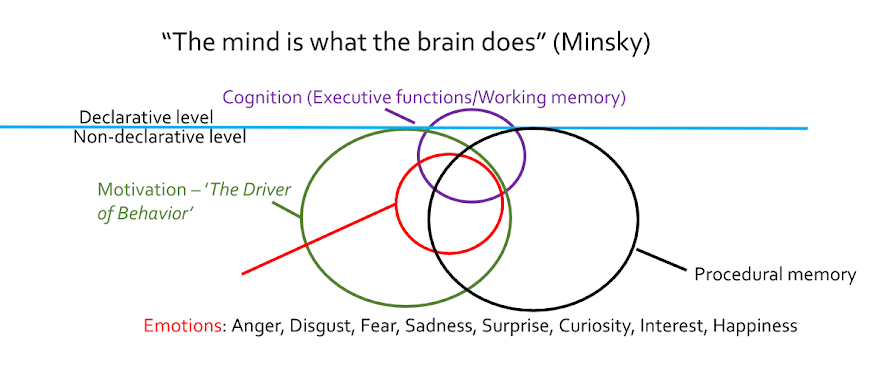Please support the blog via Swish (Sweden), MobilePay (Finland) or Wise.
Does mindfulness work? That question is asked in a current article in the journal Scientific American:
Länk till källan.
Stetka: Van Dam et al. 2017.
“The concept of mindfulness involves focusing on your present situation and state of mind. This can mean awareness of your surroundings, emotions and breathing—or, more simply, enjoying each bite of a really good sandwich. Research in recent decades has linked mindfulness practices to a staggering collection of possible health benefits (Stetka).
scientific data on mindfulness are woefully lacking. Many of the studies on mindfulness and meditation, the authors wrote, are poorly designed—compromised by inconsistent definitions of what mindfulness actually is, and often void of a control group to rule out the placebo effect.
As Van Dam and his co-authors wrote, “[there is] neither one universally accepted technical definition of ‘mindfulness’ nor any broad agreement about detailed aspects of the underlying concept to which it refers.”The sticking point seems to be the definition of mindfulness. The traditional view is that Mindfulness is about being in the present moment.
The study's first author, Nicholas T Van Dam himself writes with a popular science approach together with Nick Haslam inQuillette:
“What is Mindfulness? Nobody Really Knows, and That’s a Problem.
Mindfulness receives a bewildering assortment of definitions. Psychologists measure the concept in differing combinations of acceptance, attentiveness, awareness, body focus, curiosity, nonjudgmental attitude, focus on the present, and others”.Perhaps the biggest obstacle is that Mindfulness lacks a clear definition; different researchers use different definitions, which ultimately leads to talking about different things.
“Mindfulness mainly refers to the idea of focusing on the present moment, but it’s not quite that simple. It also refers to several forms of meditation practices that aim to develop skills of awareness of the world around you and of your behavioral patterns and habits. In truth, many disagree about its actual purpose and what is and isn’t mindfulness”.You are expected to be in the moment, while at the same time you are expected to affirm your curiosity, i.e. think ahead in time. How does it go together?
The function of the mind is not about go into memory lane or perception but about prospecting - to elaborate scenarios and then run them forward in time (Adornetti, 2016; Ardila, 2008, Ardila et al. 2018; Atance and O'Neill, 2001, 2005; Barkley, 2001; Coolidge and Wynn, 2018; Diamond, 2013; Diamond and Lee, 2011; Galister, 2017; Gilbert och Wilson, 2007; Kaku, 2014; Seligman et al. 2016; Segliman och John Tierney, 2017; Suddendorf et al. 2018). This mental function unpacks before the age of 1 as one of many subsets to emotional and social adjustment (Baumrind, 1966; Gopnik, 2016; Liu et al. 2017).
Dr. Galister:
“Memory is not about the formation of associations. Memory conveys information forward in time. For the computational use in the indefinite future”.This is how Daniel Schacter and Donna Addis write about episodic memory:
“Episodic memory is widely conceived as a fundamentally constructive, rather than reproductive, process that is prone to various kinds of errors and illusions. With a view towards examining the functions served by a constructive episodic memory system, we consider recent neuropsychological and neuroimaging studies indicating that some types of memory distortions reflect the operation of adaptive processes. An important function of a constructive episodic memory is to allow individuals to simulate or imagine future episodes, happenings and scenarios. Since the future is not an exact repetition of the past, simulation of future episodes requires a system that can draw on the past in a manner that flexibly extracts and recombines elements of previous experiences”(The cognitive neuroscience of constructive memory: remembering the past and imagining the future.)But are there definitions of Mindfulness that rhyme with prospecting?
Bishop et al. 2014:
“We propose a two-component model of mindfulness and specify each component in terms of specific behaviors, experiential manifestations, and implicated psychological processes. We then address issues regarding temporal stability and situational specificity and speculate on the conceptual and operational distinctiveness of mindfulness. We conclude this paper by discussing implications for instrument development and briefly describing our own approach to measurement”.Conclusion. Mindfulness seem to be consistent with prospection.
Please support the blog via Swish (Sweden), MobilePay (Finland) or Wise.
More about my expertise:
Executive coaching for CEOs/managers and workshops to facilitate Organizational Performance, Learning, and Creativity for Problem Solving | Lectures: Nutrition for physical and mental health | Course/lecture: children's emotional and social adjustment and cognitive development | Language training - Swedish | Academy Competency | CV | Teaching skills and experience | Summary of research project | Instagram | Linkedin | YouTube-channel | TikTok | Twitter


No comments:
Post a Comment